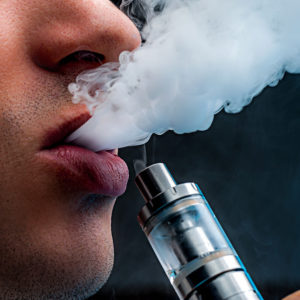When it comes to regulating smoking and nicotine products, people want science — not scaremongering. That’s the finding of a recent survey of more than 19,000 adults in 19 countries released by Philip Morris International (PMI).
According to the survey’s findings, people want “science-based” decision-making when governments deal with challenges like ending smoking-related deaths or working to expand the access of smoke-free nicotine products. And 77 percent of the people surveyed said that they are “hopeful that advances in science will solve many of society’s biggest problems.”
There are consistent positive attitudes toward science-based policy.
However, there is still a lack of trust among nearly half of the respondents, about 47 percent, who believe that society doesn’t always place enough importance on science. From a converging point of view, 51 percent believe that their “government does a good job ensuring science and evidence are included in the decision-making process.”
“Challenges around people’s access to reliable scientific information create more impediments to the primacy of science today,” Dr. Moira Gilchrist, PMI’s global head of scientific communications, said in an interview. “When reliable scientific information is in short supply, people may be more susceptible to misinformation, wild guesses, and hearsay — all of which hinder their ability to make informed decisions.”
Gilchrist is specifically referring to the sentiments surrounding smoke-free nicotine products. PMI conducted this survey to serve as a source of consumer information that can back up their belief that tobacco control organizations all over the world are becoming more dogmatic in their policy advocacy. Through that dogma, governments are encouraged to adopt aggressive anti-tobacco agendas.
While not a saint given the deadly history of cigarettes and smoking, PMI as a corporate actor has invested billions of dollars since 2008 to ultimately transition away from combustible tobacco products. Gilchrist said that in 2019, 98 percent of the company’s research and development funding went toward smoke-free product design and development. She indicated that this trend isn’t going to change in the coming years.
“When reliable scientific information is in short supply, people may be more susceptible to misinformation, wild guesses, and hearsay — all of which hinder their ability to make informed decisions,” Gilchrist said.
From a product standpoint, PMI is one of the first companies in the world to receive a modified risk tobacco classification for it’s heated tobacco system, IQOS. The Food and Drug Administration (FDA) can label a tobacco or nicotine product as having modified risk that’s empirically proven to be less than the harm associated with cigarettes.
IQOS, a system that heats tobacco to create a vapor instead of smoke, was the first inhalant tobacco product to get this classification from the FDA.
Regardless, PMI’s survey results speak to the sentiments of vaping consumers in the United States and other countries. Alex Clark, chief executive officer of the Consumer Advocates for Smoke-Free Alternatives Association, found the findings of the survey to be revealing.
“One of the most important revelations from this survey is the extent of people’s real or perceived lack of access to scientific literature,” Clark said in an email. “When ordinary people aren’t able to review the source material for themselves, we are subject to the bias of those reporting on it or otherwise promoting it.”
The U.S. vaping industry has since passed the September 9 deadline for premarket tobacco applications. All tobacco products, including vapes, are required to have FDA approval to be sold on the market.
Thousands of applications have flooded into the agency’s Center for Tobacco Products, and FDA approvals for vaping devices and liquids are slowly trickling out.
PMI’s survey adds further justification for vaping consumers to know the exact information behind the products they use. Clark, like Gilchrist, believes that policymaking now should encourage more information sharing with consumers and scientists alike.
Clark added: “This lack of attention has created an environment where activists can intentionally weaponize “peer-reviewed” published research even though, often enough, the conclusions of the authors are not supported by the data.”


